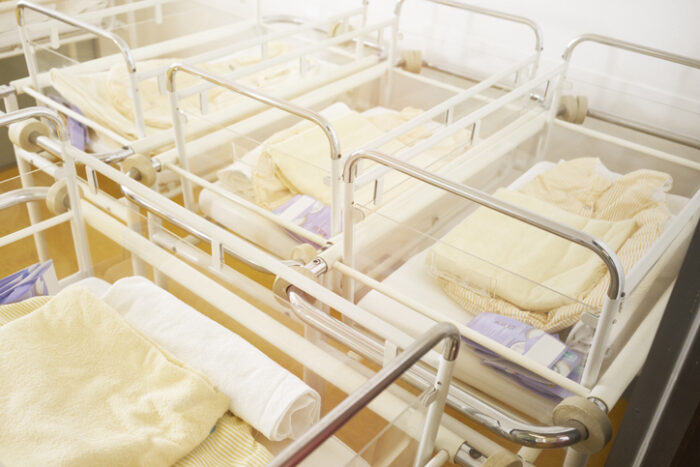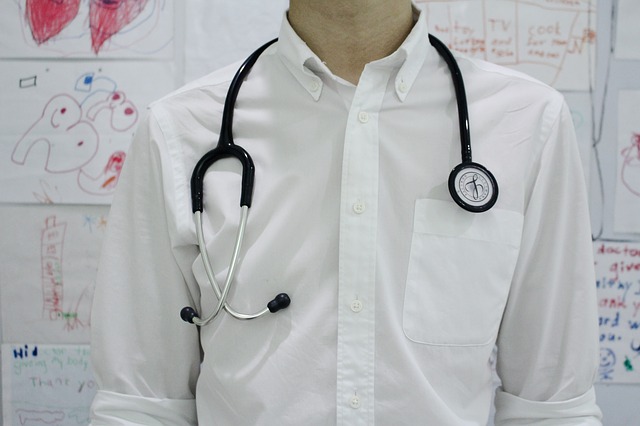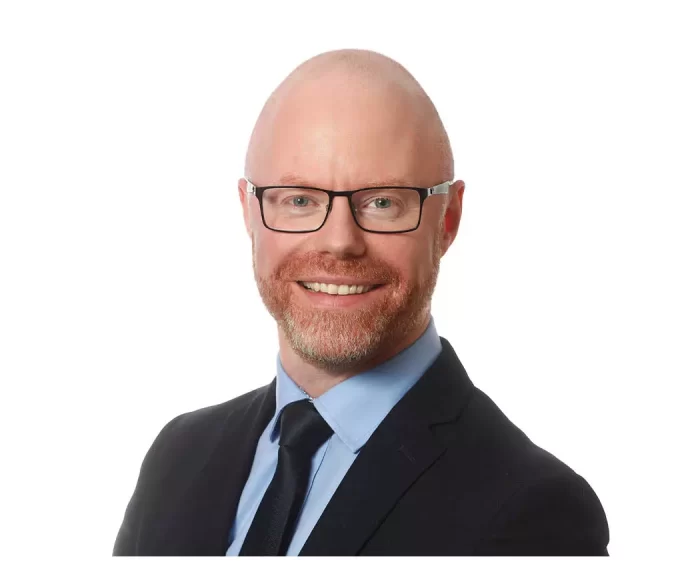
Minister for Health Stephen Donnelly has been attacked for vowing to implement so-called ‘safe access zones’ around abortion providers that would see churches in some areas limited in their ability to display pro-life messaging on their own grounds.
Clare Independent TD Michael McNamara said the proposal seems to be “part of a culture war and a desire to be seen to be addressing a problem without even analysing whether the problem exists”.
“It’d be much more in his line to concentrate on delivering the Children’s Hospital and the National Maternity Hospital because legislation like this is, at best, an attempt to distract from the Government’s manifest failures in regard to much more core elements of their mandate,” Deputy McNamara said.
Barrister Maria Steen told The Irish Catholic the Bill is a “gross breach” of “religious rights, certainly, and also freedom of expression and freedom of assembly”.
“Many churches and parishes might celebrate Corpus Christi or have a rosary procession or something – if somebody says a prayer for the unborn children, is that then to be taken as offending against this law? For instance, things like the 40 Days for Life, there might be posters up about that on Church railings and so on – does that all fall afoul of the legislation?”
“Well, yes, on the face of it, it does,” Mrs Steen said.

Anorexia should be considered a terminal disease so that patients suffering it can avail of assisted suicide, according to two physicians in the US.
Dr Jennifer Gaudiani, the medical director at the Acute Center in Denver, which specialises in the treatment of severe eating disorders, said there was no guidance on when to allow a patient to stop treatment – essentially, to allow their self-starvation to take its ultimate, fatal course – and if the disorder could, in fact, be considered terminal.
She co-authored an article in the Journal of Eating Disorders, about what she dubbed “terminal anorexia nervosa”. It was intended as a guide for treating severely ill patients, including assisted suicide as an option which is legal in 10 states and in Washington, DC.
She and New Mexico psychiatrist Joel Yager, proposed a set of criteria for terminal anorexia: being at least 30 years of age, having engaged in “high-quality, multidisciplinary eating disorder care”, and consistently and clearly expressing that they understand continued treatment is futile and that they will die from their disorder.

All schools must teach a proposed Leaving Certificate sex education curriculum that will include gender ideology, namely the belief that your biological sex and your ‘gender’ are not the same thing, and “possible responses” when facing an unplanned pregnancy, although parents will have the right to pull children from classes.
It is not clear whether schools will be allowed to adapt the proposed curriculum to their ethos, although this is permitted by the Education Act.
The radical changes to Social Personal and Health Education (SPHE) and relationships and sexuality education (RSE) are set out in proposals from the National Council for Curriculum and Assessment (NCCA). It has just published a draft SPHE specification for consultation.
The specification states that “LGBTQ+ identities, relationships and families are fully integrated and reflected in teaching and learning, as opposed to being addressed within stand-alone lessons”.
The NCCA also addresses the patchy nature of teaching in SPHE and RSE for Leaving Cert students. The new curriculum will be mandatory, according to newspaper reports, with an average of almost one hour per week – a total of 60 hours – across senior cycle.
Nonetheless parents will have a right to request that their child opt out of any learning that contravenes their conscience. Once a student turns 18 they have a right to decide for themselves.

Having a baby is increasingly being considered a threat to the idyllic lifestyles of “dual income, no kids yet” couples – otherwise known as Dinkys, according to a report in the Daily Telegraph.
One couple interviewed by the newspaper said they have been spending their savings and income on renovating a 1930s-style semi-detached house.
Ellie Macintosh, 27, says: “This has felt like our baby. We’ve nearly finished the work. Now we just want a couple of years to be selfish – go on trips, be able to go to the cinema at the drop of a hat. We already have to worry about our pets.”
Raising a child to adulthood is heavy on the pocket, at an estimated £160,692 per offspring, according to the Child Poverty Action Group, a charity.
For many couples, not having enough disposable income to go on holiday together is enough to put them off becoming parents, at least for the foreseeable future.
But economists fear Britain’s declining birth rate spells trouble. Without new taxpayers, how will the Government fund big infrastructure projects, the NHS and the state pension?

Ireland was one of only six EU countries to see a positive ‘replacement rate’ in 2022, where births still outnumber deaths, according to Eurostat.
Migration was responsible for a far bigger proportion of Ireland’s population surge in 2022 than so-called ‘natural change’ the bloc’s statistics agency said.
Net migration in Ireland was responsible for an increase of almost 112,000 people in the population last year, while ‘natural change’ was responsible for adding 22,500 people. In 2012, births exceeded deaths by over 42,000.
The figures come after a Eurobarometer survey this week, carried out in June, found that Irish people are more worried about housing and immigration than their EU counterparts.
Previous Eurostat figures show Ireland has one of the EU’s youngest and fastest-growing populations, even though first-time mothers here are older than in most other countries.
The latest Eurostat data shows net migration was the main driver of population growth across the EU last year, including in France, Cyprus, Luxembourg, Malta and Sweden – the other five EU countries that saw a positive replacement rate in 2022.

A New Zealand health practitioner is under investigation for allegedly raising the possibility of availing of assisted suicide with a patient in a state of suicidal ideation.
The Health and Disability Commissioner is investigating the case, which was revealed in a Ministry of Health report published Tuesday.
The report said a complainant had raised concerns about “a health practitioner initiating a conversation about assisted dying with a suicidal young person”.
Under New Zealand’s assisted dying law, a doctor or other health professional cannot initiate discussion about assisted dying. It must be initiated by the patient.
While the patient’s condition is not detailed in the report, the law also explicitly states that a person cannot be eligible for euthanasia on the basis of mental illness alone. There is also a minimum age of 18 years old.

Doctors in Spain who oppose the practice of abortion suffer “brutal discrimination”, according to the general coordinator of the National Association for the Defense of the Right to Conscientious Objection.
Attorney, José Antonio Díez, made the statement following a ruling by the Constitutional Court (TC) of Spain declaring that the “right to abortion” is violated when a hospital administration refers a woman who wants to have an abortion to a private establishment if the doctors at the public health facility did not object to performing abortions in writing and in advance.
The case dates back to 2014, when the Health Service of the autonomous community of Murcia referred a 35-year-old pregnant woman to a private abortion center in Madrid, alleging that there were no doctors willing to provide an abortion in the region’s public health system.
However, according to the TC, the abortion “has to be carried out in the centers of the public health network of the autonomous community itself, except in supposedly exceptional cases in which the public health service cannot facilitate it due to widespread conscientious objection.”
The Constitutional Court ruled that “in the prosecuted case it was not proven” that the doctors had exercised that right individually, in advance and in writing.

Nicaraguan Bishop Rolando José Álvarez Lagos was sent back to prison last week after he refused to comply with the Ortega regime’s demand that he go into exile.
After speaking out against Ortega’s ever-escalating persecution of the Catholic Church, Álvarez, 56, was arrested in 2022 and subsequently sentenced on 10 February after refusing to board a plane carrying 222 political dissidents, including four priests, who were flown to the US in an agreement with the State Department.
Álvarez was sentenced to 26 years and 4 months in prison on treason charges and had his Nicaraguan citizenship revoked.
Under the dictatorship of Ortega and his wife and vice-president Rosario Murillo, hundreds of Nicaraguans, including priests and religious, have been arbitrarily arrested and deported, Church assets and property have been seized, and religious freedom has been greatly restricted.
In March, after Pope Francis strongly criticised the Ortega regime, likening it to Nazi Germany, the dictatorship closed the Holy See’s embassy to Nicaragua, officially cutting off all diplomatic ties with the Vatican.

Pro-life groups praying on church grounds but within reach of an abortion clinic, would be criminalised in a new bill, according to Health Minister Stephen Donnelly.
Presenting the Health (Termination of Pregnancy Services) (Safe Access Zones) Bill 2023 in the Dáil on Wednesday, Mr Donnelly said the bill will create a 100m radius zone from the entrance or exit to a premises where obstetricians, gynaecologists and GPs provide or administer abortions.
Where a church falls within that 100m zone, he said the bill “ensures that conduct which would otherwise be lawful, which occurs within a public place, meaning a building of worship, is not prohibited. This is to protect, for example, sermons that may be given during church services”.
However, he added, “It should be noted that this exception would not apply to, for example, grounds outside of a church within a safe access zone to avoid a situation where protestors use the grounds of a church or other similar location to circumvent the prohibited activities”.
“The aim of this overarching approach is to ensure the effect of the proposed legislation on the rights of those affected is proportional to the objective sought to be achieved”.

Germany’s Bundestag on Thursday voted down two proposals that would have enable a regime of assisted suicide.
The first would have made assisted suicide legal for stated circumstances, but otherwise prohibited. 304 lawmakers voted in favor, with 363 against.
The other proposal sought to enshrine a right to self-determined death in law.
Two groups of parliamentarians put forward the proposals which were subject to a free vote.
For one group, Katrin Helling-Plahr of the business-focused Free Democratic Party (FDP) said there were many people who wanted to decide to die when the right time for them had come, and that they should be able to do so without fear of legal repercussions.
Center-left Social Democrat (SPD) politician Lars Castellucci, speaking for the other group, said it was important to make assisted suicide possible without encouraging it.
He said anyone providing organized possibilities for suicide without adhering to a fixed concept of protecting the vulnerable should be liable for penalties.
Both proposals shared the aim of creating a legal framework for giving those wanting to commit suicide access to the lethal drugs they need.